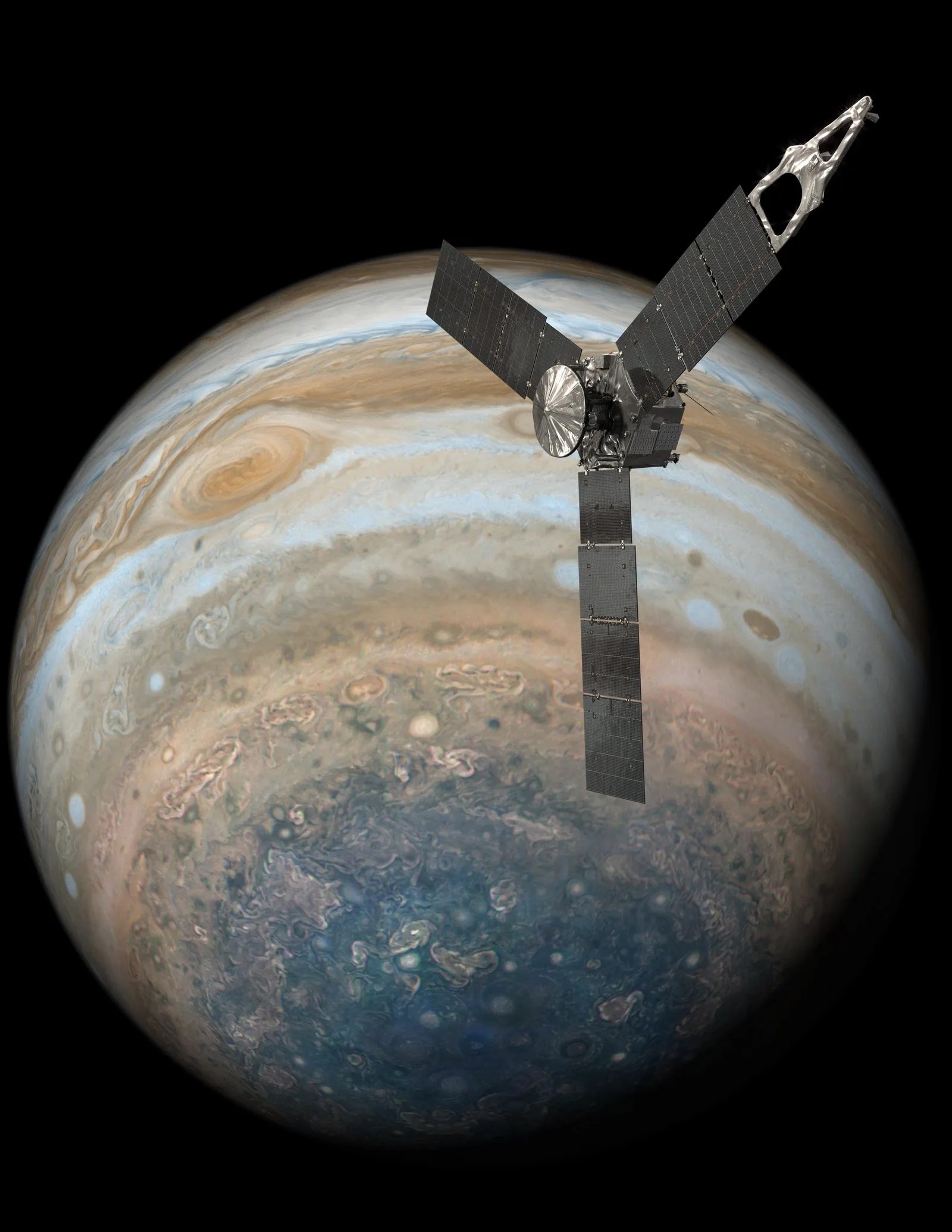2 min read

Help astrophysicists analyze the stunning images from NASA’s Juno spacecraft!
A new NASA citizen science project, Jovian Vortex Hunter, seeks your help spotting vortices---spiral wind patterns—and other phenomena in gorgeous photos of the planet Jupiter.
“There are so many images that it would take several years for our small team to examine all of them,” said Dr. Ramanakumar Sankar, who leads the project. Dr. Sankar is a postdoctoral researcher at the University of Minnesota School of Physics and Astronomy. “We need help from the public to identify which images have vortices, where they are, and how they appear.”
Another NASA citizen science project, called “Junocam” seeks help from members of the public processing images from NASA’s Juno Mission and choosing targets for the spacecraft. However, the new Jovian Vortex Hunter project provides images that have already been processed by the science team, making it quick and easy for anyone to lend a hand. Categorizing the images will help scientists understand the fluid dynamics and cloud chemistry on Jupiter, which create dazzling features like bands, spots and “brown barges”.
Besides Sankar, the Jovian Vortex Hunter research team includes Lucy Fortson, a University of Minnesota physics and astronomy professor and co-founder of the Zooniverse platform; Shawn Brueshaber, a postdoctoral researcher at NASA’s Jet Propulsion Laboratory (JPL) run by CalTech; Candice Hansen-Koharcheck, a senior scientist at the Planetary Science Institute and the Principal Investigator of the JunoCam instrument; Glenn Orton, the supervisor for JPL’s Planetary and Exoplanetary Atmospheres Group; Chris Lintott, an astronomy professor at Oxford University and co-founder of Zooniverse; and Kameswara Mantha, a postdoctoral researcher at the University of Minnesota Twin Cities with the Zooniverse team.
To science with this team, go to the Jovian Vortex Hunter website. Or follow the project on Twitter at https://twitter.com/jvnvortexhunter.
NASA’s Citizen Science Program:
Learn about NASA citizen science projects
Follow on Twitter
Follow on Facebook







